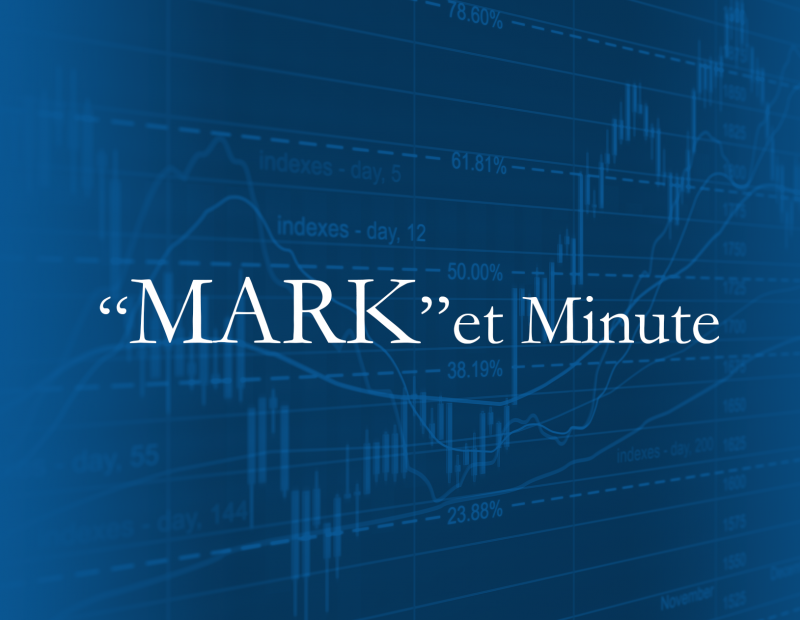Investment Commentary – March 3rd, 2016
Market Indices as of Market Close March 3rd, 2016
Dow 16,899 (-3.02% YTD)
S&P 1,986 (-2.81% YTD)
NASDAQ 4,703 (-6.07% YTD)
Global Dow 2,033 (2,033 52 week low /2,644 high)
10-year Treasury 1.85 (1.53 52 week low /2.50 high)
Gold 1,241 ($1,047 52 week low /high $1,264)
Oil $34.49 ($28.74 52 week low /high $65.71)
U.S. stocks log gain as oil fuels energy-sector rally
U.S. stocks closed higher Wednesday, building on the previous session’s advance, partly thanks to a jump in the energy sector following sharp gains in crude.
A somber take on the U.S. economy in the Federal Reserve’s Beige Book bolstered the view that the central bank is likely to be slow to raise interest rates this year—typically a benefit to stock investors hoping for lower-for-longer interest-rate policies.
The S&P 500 SPX, +0.41% closed up 8.10 points, or 0.4%, at 1,986.45. The energy sector, up 2.5%, advanced the most, with eight of the S&P 500’s sectors finishing in positive territory. The Dow Jones Industrial Average DJIA, +0.20% closed 34.24 points, or 0.2%, higher at 16,899.32.
The Nasdaq Composite COMP, +0.29% gained 13.83 points, or 0.3%, to 4,703.42.
“Today’s moves are very small and it’s not surprising to see markets take a breather after a big rally, like the 300-point gain in the Dow yesterday,” said Maris Ogg, president at Tower Bridge Advisors.
“The fact that the economy is still growing, however slowly, is good news, and since markets are not anticipating a rate hike soon, they are taking good news as good news,” Ogg said.
Crude-oil prices settled higher Wednesday after a report on inventories. Commodity investors focused on the drop in production in the report from the U.S. Energy Information Administration, while shrugging off a bigger-than-expected increase in weekly supplies.
Dimon Says U.S. Is Unlikely to Get Negative Interest Rates
The U.S. Federal Reserve is unlikely to lower its benchmark rate below zero, JPMorgan Chase & Co. Chief Executive Officer Jamie Dimon said.
“In the United States, I don’t think it’s in the cards,” Dimon said Thursday in an interview on CNBC. “If I was in the central bank, I would be working with the policy makers on the fiscal side, saying we need joint, coordinated, intelligent policy.”
Central banks in the euro zone, Switzerland, Sweden, Denmark and Japan have all pushed some key interest rates negative in recent years to stimulate growth and inflation. Policy makers in the U.S. lifted their benchmark rate in December after leaving it near zero for seven years.
“Overseas, I don’t think it’s going to work that well,” Dimon said. “I think it’s going to have a lot of unintended consequences that we don’t understand and you guys will be writing books for 50 years on it — what we could have done, should have done, might have done, and what we learned.”
Former Fed Chairman Alan Greenspan said this week in an interview with Bloomberg Television that negative interest rates, if pursued for an extended period of time, would eventually distort saving and investment.
Before it’s here, it’s on the Bloomberg Terminal.
THIS DAY IN FINANCIAL HISTORY
March 3rd, 1873 Salary Grab Act: Congress passed a bill that doubled the salaries of legislators, the President and Supreme Court Justices; the bill was eventually repealed at the demand of the public.
The views presented are not intended to be relied on as a forecast, research or investment advice and are the opinions of the sources cited and are subject to change based on subsequent developments. They are not a recommendation, offer or solicitation to buy or sell any securities or to adopt any investment strategy.
http://www.marketwatch.com/story/us-stocks-show-signs-of-struggle-as-oil-prices-pull-back-2016-03-02
http://www.bloomberg.com/news/articles/2016-03-03/gross-says-banks-permanently-damaged-as-credit-expansion-ends
http://www.econedlink.org/economic-calendar.php?month=3


Leave A Comment